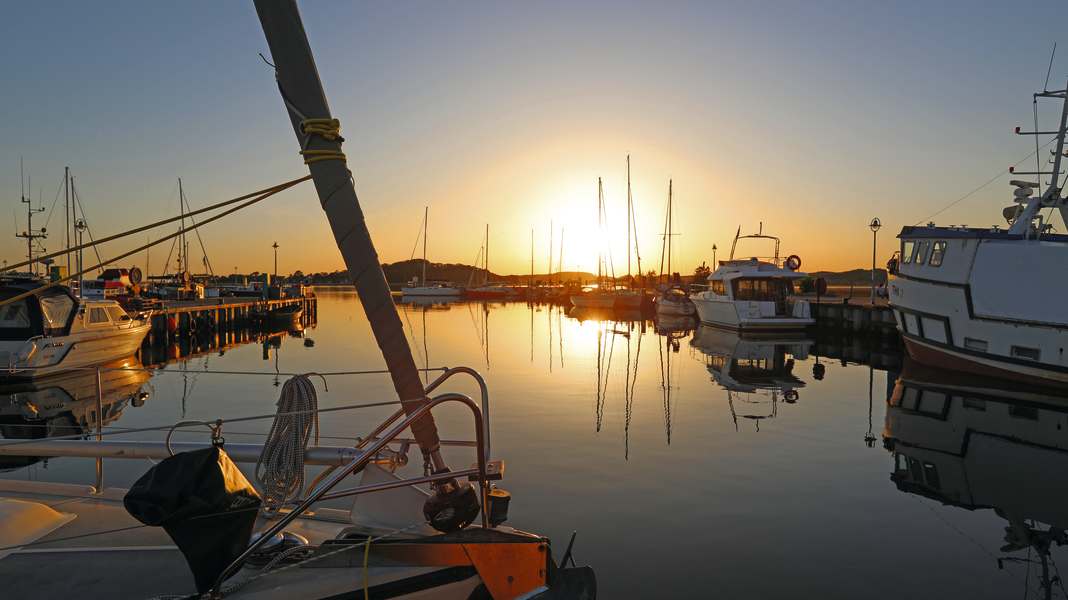
In some places on the island, sailors who only moor in the harbour for one night have to pay tourist tax for two full days - for the day of arrival and the day of departure. This leads to multiple charges, especially for boaters who call at several harbours on Rügen. In Sellin harbour, for example, around 30 percent of water sports enthusiasts only stay for one night. For a family of four, this means another 20.24 euros in visitor's tax in addition to the mooring fees of 20.70 euros for a boat up to nine metres in length.
Read also:
Do sailors benefit from the tourism tax?
Many water sports enthusiasts ask themselves to what extent the levy is justified if they do not use most of the tourist services and infrastructure that are paid for with it. Those who moor up in the harbour after a long day on the water and want to cast off the next morning hardly have a chance to make use of the tourist facilities. As varied as they may be. What's more, the tourist tax does not apply to the whole island. Sometimes you have to pay twice on the same day, in the morning in the first harbour and in the evening in the second harbour, even if you have spent the whole day on the water.
Already fewer day visitors
Rieke Boomgaarden is the harbour master in Gager, a small village on the Hagenschen Wiek, which is part of the Mönchgut Granitz tourist region. He is the one who feels the displeasure on a daily basis when he has to collect the fees that he himself does not benefit from. "Since I've been running the harbour, the visitor's tax has doubled. Over the same period, our guest arrivals have steadily decreased. Especially for boats with several people on board. The guests then pay more visitor's tax as a mooring fee. This is completely disproportionate for larger passenger ships. We've already had cancellations because the difference to another port on the island, which only charges per night and not per day of arrival and departure, was more than 600 euros per night. Then the revenue is not even generated because the guests simply don't turn up." For the privately operated harbour in Gager, which does not receive any subsidies from the visitor's tax, the income from guest arrivals is vital.
Administrative burden for port operators
In addition to the financial burden for water sports enthusiasts, the billing of the visitor's tax also means a considerable administrative burden for the harbour operators, according to Boomgaarden. The data of every water sports enthusiast must be recorded. The situation is complicated by different regulations in the various municipalities on Rügen. The Baltic seaside resorts of Sellin, Baabe, Göhren and Mönchgut now have a standardised tourist tax. Anyone leaving the harbour in Gager does not have to pay the full visitor's tax again for the same day in the harbour in Sellin. However, this regulation does not apply to the entire island. Unlike in Sellin and Gager, for example, the regulations in Putbus stipulate that the visitor's tax is only payable per overnight stay and not for the day of arrival and departure.
Important source of income for municipalities
The visitor's tax is an important source of income for the municipalities. The harbour in Sellin alone generates an average of 20,000 euros in visitor's tax per year. This income is essential for the municipalities. It is used to finance events, buses and ferries in the Mönchgut Granitz region, which benefits rural tourists. It is also used to subsidise some of the harbours. At least according to a statement made by Sellin tourism manager Conrad Bergmann to NDR: "We have a harbour master, the office is manned daily until 6 pm. The harbour is cleaned daily. And we couldn't finance the whole thing here as it is with just the mooring fee, which is the same as the price of an overnight stay in a hotel, even with all the services." But not all harbours benefit from the tax. Boomgaarden can also understand the criticism from his guests that the tourist tax in his rather remote harbour helps to finance services that are offered further away and for which there is no time during a short stopover.
Solutions for the future
Many marina operators are calling for a standardised regulation that applies to the entire island. The aim should be a simple map that allows sailors to head for any harbour in the area without any red tape. Otherwise, in the worst-case scenario, guest moorings could become permanent moorings and no sailor would have the chance to call at a harbour on their trip. The Rügen Tourism Association would have no interest in this either. Mutual recognition of the tourist tax on the entire island would make sense simply because guests see the island as one destination and do not understand why they have to pay the tourist tax twice in one day. It is not yet clear when this solution will be implemented. Possibly with the planned tourism law for Mecklenburg-Vorpommern, which envisages a guest tax for everyone. But Boomgaarden is sceptical. After all, it was the standardisation of the visitor's tax for the Baltic seaside resorts of Sellin, Baabe, Göhren and Mönchgut that led to the increase in the first place. It therefore remains questionable whether a merger would actually lead to lower costs for water sports enthusiasts.

